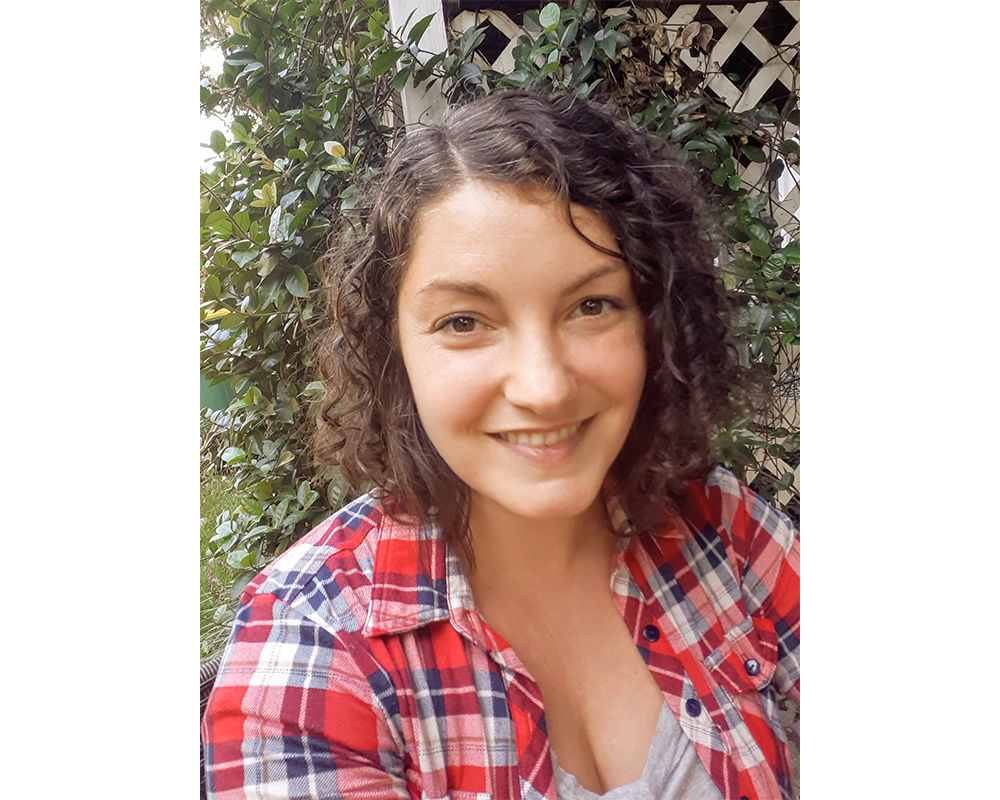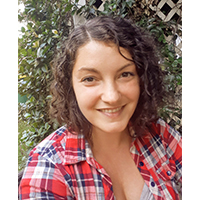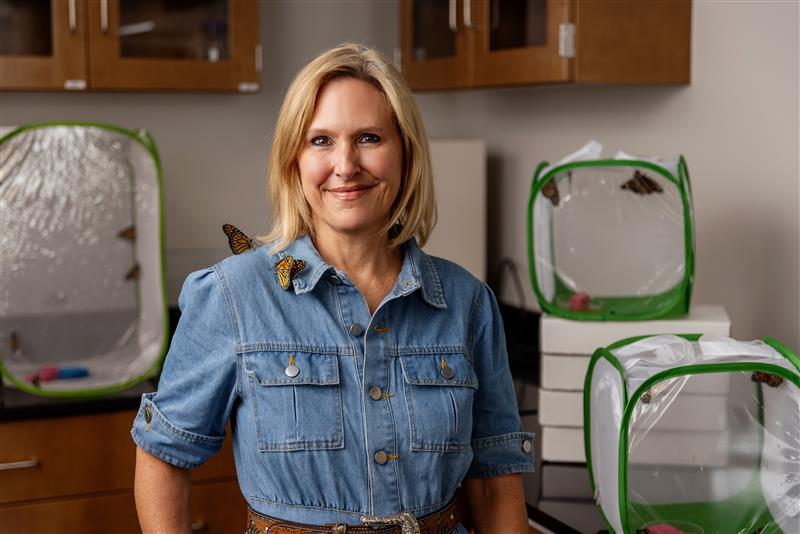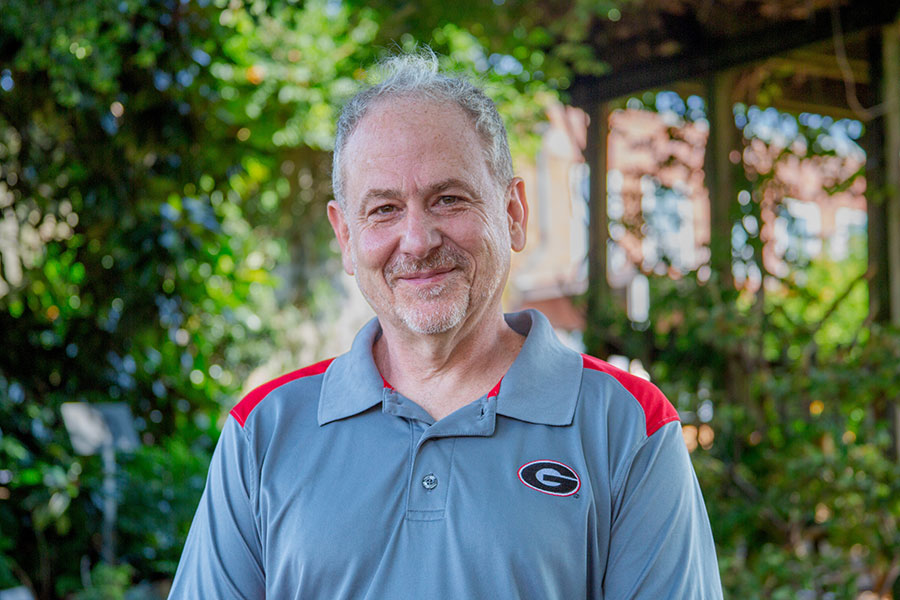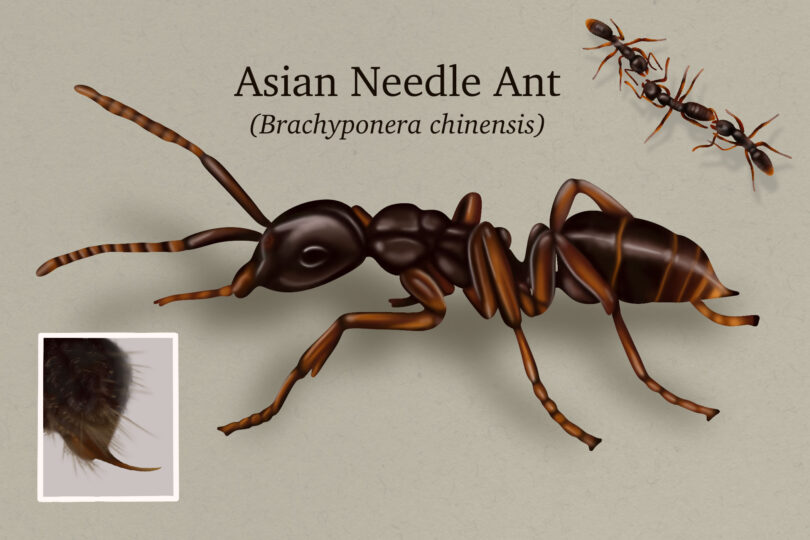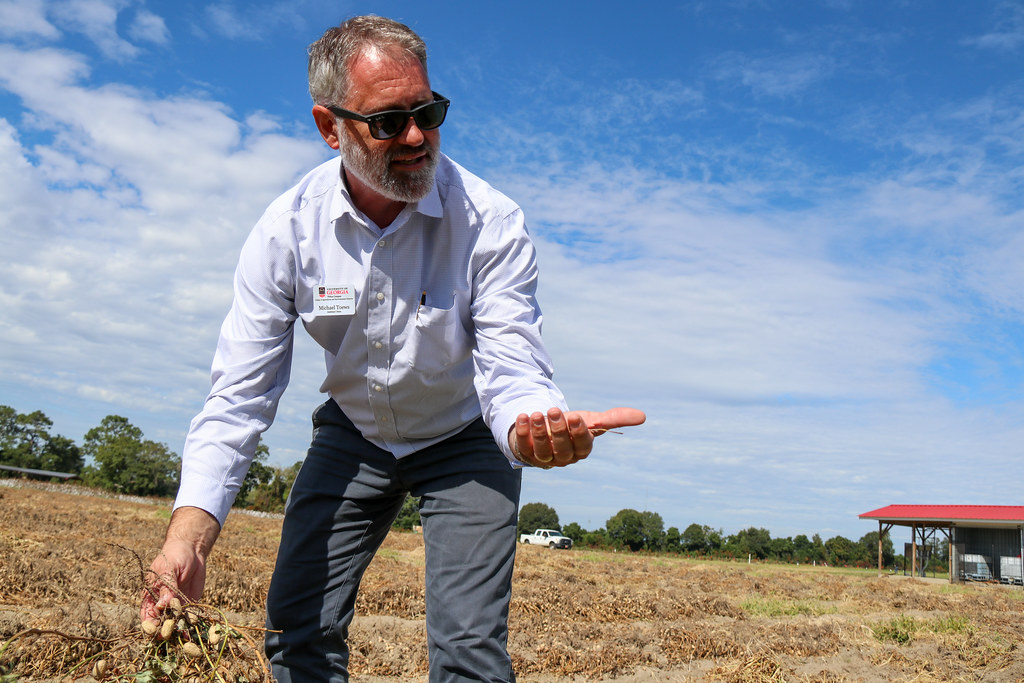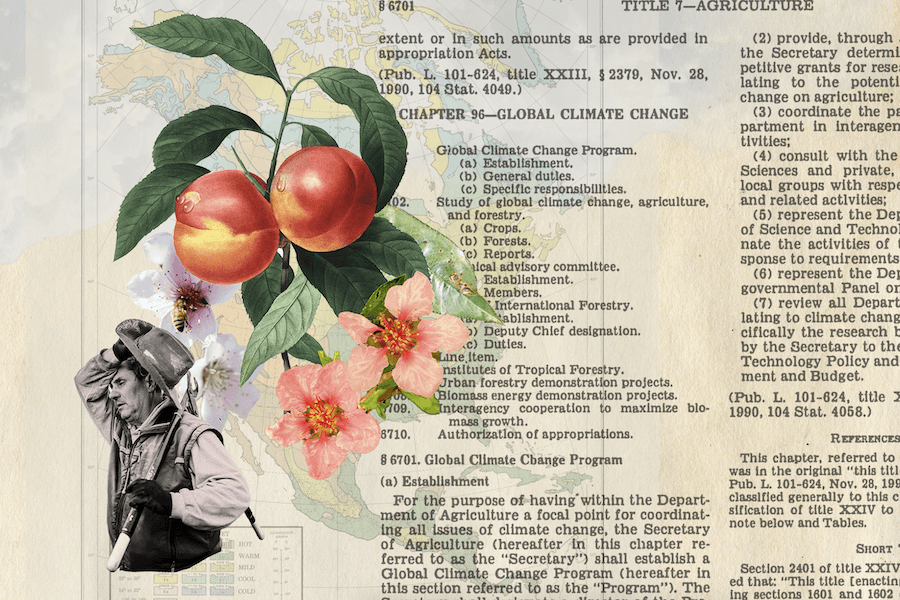Agroecologist and entomologist Carmen Blubaugh has big plans for her service-learning course taught through the College of Agricultural and Environmental Sciences, and her efforts have been recognized with her selection as a 2021-22 University of Georgia Service-Learning Fellow.
The university honor comes with a fellowship award of up to $2,500 to be used for developing her proposed project, and she will have the opportunity to be matched with a mentor from previous service-learning fellow cohorts based on areas of interest. The yearlong program consists of a retreat, monthly meetings and a Service-Learning Fellows Showcase during which participants present their final projects at the end of the year.
“Service-learning is powerful and hard,” Assistant Professor Blubaugh explained about her developing program. She challenges her students to research and “deeply consider community needs” as they generate insect outreach projects with lasting impact.
For her fellowship project, Blubaugh is developing a collaborative school-garden research network focused on insect food webs, her research passion.
“We’re interested in how vermicompost applications influence communities of pests and beneficial insects, and we’ve recruited a group of teachers who are excited to try out pilot experiments together with their classes in raised beds,” Blubaugh said.
Blubaugh’s students will be paired as mentors with local elementary school classrooms to implement research projects that creatively integrate garden-based experiments with state STEM education standards. The service-learning students will introduce common garden insects, create collections of pests and beneficial insects, compose lecture content on ecosystem services that insects provide, and develop bug sampling activities to collect data.
Traditionally, this would be the extent of the program, but Blubaugh pushes her students and the young students they serve to find a firsthand view from which to learn.
“My service-learning students will work together to analyze and synthesize the data and present the results of our experiment to all of our collaborating classrooms,” Blubaugh explained. “Through this project, our students will experience food webs in real life, practice analytical skills and appreciate the benefits that biodiversity can bring.”
Blubaugh said she is honored to be a part of the fellows program and is looking forward to the mentorship opportunities it offers.
“I’m excited to make friends with other faculty who share my commitment to service and hope to find some mentors and collaborators who can offer guidance and expand the scope and impact of my project,” she said of the program opportunities.
For Blubaugh, the passion for seeing the lightbulb of understanding go on for students is what it is all about.
“I work individually with each of my students to hatch a plan for a service project that leverages their unique talents, but they don’t escape from me without stepping outside of their comfort zones to practice communication, resourcefulness, discipline and empathy,” Blubaugh said. “It’s rare that students at a giant R-1 university have these opportunities in-class, but these intangible skills are everything for students once they move on from college.”

